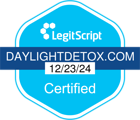Asking for help and completing an addiction treatment program are the first steps towards recovery. Finishing rehab is a major accomplishment that you should be proud of. However, being discharged from rehab after completing the program isn’t the end of your recovery. If you truly want to stay sober, you’ll need to make adequate preparations to ensure you are ready to leave rehab, remain sober, and cope with challenges appropriately. While you may be eager to leave rehab and get on with the rest of your life, it is vital that you are prepared to stay sober on your own.
Why is it Important to Make Plans for Drug Rehab Aftercare?
If addiction treatment is effective and if rehab really works, why do you need to make considerations for when you leave rehab? Won’t you be better or cured?
Unfortunately, addiction is a complex disease, and recovery is not that simple. Even the nation’s highest-rated rehabilitation facilities have patients who relapse every now and then. In fact, it is estimated that between 40-60% of individuals who seek treatment for substance abuse relapse at some point in their recovery.[1]
While relapse is common, it is not a mandatory part of recovery, and mitigation strategies can be put into place to reduce your risk of relapse. One of the best ways to prevent relapse after a residential treatment program is to develop an aftercare plan that suits your individual needs.
Creating an Aftercare Plan With Your Substance Abuse Counselor
In the weeks before you are discharged from our drug rehab facility in West Palm Beach, you will begin working with your substance abuse counselor to create an aftercare plan. Drug rehab aftercare simply refers to programs or resources that should be utilized for the continued treatment of your addiction. Examples of aftercare include:
- Sober living homes – These homes provide safe, supportive, and structured housing for people who are recovering from addiction. With mandatory drug testing, house rules, and sober support, these homes can reduce the risk for relapse.[2]
- Outpatient programming – Outpatient programs like IOP or OP provide addiction treatment services on an ambulatory basis. They are considered a step-down from residential care and can help support you after you leave rehab.
- Alumni groups – Many addiction treatment centers in Florida have alumni groups that bring together past patients who have stayed sober. You can meet others in recovery and participate in sober events with an alumni group.
- Individual drug or mental health counseling – Individual counseling is a great way to continue receiving individualized therapy. Regular check-ins with a trusted therapist can help hold you accountable and keep you on the right track.
- 12-Step meetings – 12-Step groups like Alcoholics Anonymous (AA) and Narcotics Anonymous (NA) are popular options among recovering individuals. These programs teach people how to live sober lifestyles and enable them to obtain support from like-minded individuals.
Your substance abuse counselor may suggest you participate in one or more of the above-listed aftercare programs. He or she will consider your specific needs, your schedule outside of rehab, and other factors to make sure you are prepared to leave rehab and stay sober afterward.
Considerations for Returning Home After You Leave Rehab
While many people choose to go to a sober living program when they leave rehab, others have families they must return home to. It’s important to acknowledge that making the transition from a residential treatment program back into the familiar setting of your home can present certain challenges. If you will be returning to your home after rehab, especially if that home is far away from the rehab facility and your sober support groups, consider doing the following to prepare.
- Ask a trusted loved one to conduct a “sweep” of your home and personal belongings to get rid of any drugs, alcohol, or paraphernalia
- Do your research and compile a list of nearby 12-Step meetings that you can attend
- Invite your family to treatment for a family therapy session to discuss your return to home and/or to set any boundaries that need to be set
- Gather the phone numbers and contact information of your therapist and your sober support system from rehab so you can stay in touch with them
- Develop a practical schedule and routine that you can follow once you are home
Find The Support You Need at Daylight Recovery Center
Here at Daylight Recovery Center, we acknowledge the disease model of addiction and won’t promise you a cure. Instead, what we will promise is exceptional, individualized care that is tailored to meet your specific needs, thus helping reduce your risk of relapse. In addition, an integral part of our program is our discharge planning services.
Our counselors spend extra time helping you create a detailed aftercare plan that will pave the way for your continued sobriety. They make sure to answer all of your questions and connect you with the resources you need to stay sober after you leave rehab.
Don’t settle for subpar addiction treatment. See the difference evidence-based treatment makes with Daylight Recovery Center. Don’t wait any longer–call us today to see how we can help.
References:



